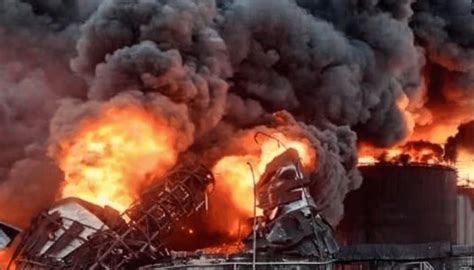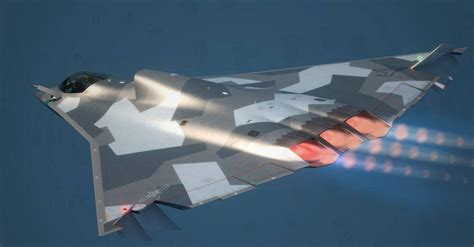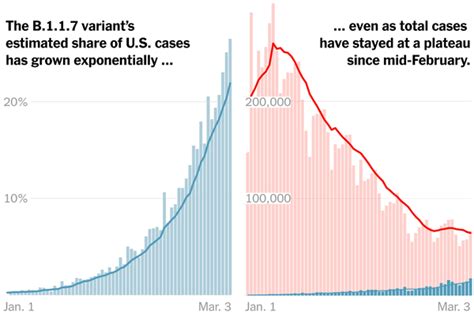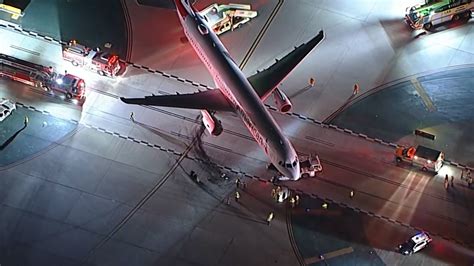
A large fire erupted at an oil depot in Russia’s Bryansk region on Wednesday after what authorities claim was a drone strike, marking the latest in a series of reported incidents targeting Russian infrastructure amid the ongoing conflict in Ukraine. The blaze prompted evacuations and heightened security measures in the area.
A significant fire engulfed an oil depot in the Surazh district of the Bryansk region, Russia, on Wednesday, June 19, 2024, following what regional Governor Alexander Bogomaz attributed to a Ukrainian drone attack. Emergency services were deployed to combat the blaze, which rapidly spread across the facility. “As a result of the attack by a Ukrainian unmanned aerial vehicle, an oil depot in the Surazh district is on fire,” Bogomaz stated via his Telegram channel. He further added that no casualties were reported, and emergency services were actively working to extinguish the fire. The incident has prompted increased security measures and heightened concerns regarding the vulnerability of Russian infrastructure to cross-border attacks.
The fire, which was reported to have consumed a large portion of the oil depot, necessitated the evacuation of personnel and residents from nearby areas. Local authorities have established a security perimeter around the site to prevent unauthorized access and ensure public safety. The extent of the damage is still being assessed, but initial reports suggest significant losses in terms of stored fuel and infrastructure.
This incident is the latest in a string of reported drone attacks and sabotage operations targeting Russian territory, particularly regions bordering Ukraine. These attacks have focused on critical infrastructure such as oil depots, power stations, and transportation hubs, raising questions about Russia’s air defenses and border security. Ukrainian officials have not directly claimed responsibility for the attacks, but they have consistently maintained the right to defend their territory against Russian aggression using all available means.
The Bryansk region, which shares a border with Ukraine, has been the site of several previous incidents involving drone strikes and cross-border shelling. These incidents have disrupted civilian life and caused damage to infrastructure, contributing to a sense of insecurity in the region. Russian authorities have responded by increasing military patrols and strengthening border defenses, but the attacks have continued to occur with alarming frequency.
The attack on the Surazh oil depot is likely to further escalate tensions between Russia and Ukraine. Russia has condemned the attacks as acts of terrorism and has vowed to retaliate against Ukrainian targets. The international community has called for restraint on both sides and has urged a peaceful resolution to the conflict. However, with no immediate prospects for a ceasefire or negotiated settlement, the risk of further escalation remains high.
The incident also raises concerns about the potential for wider economic and environmental consequences. The destruction of oil storage facilities could disrupt fuel supplies and lead to price increases, while the resulting pollution could have long-term impacts on the environment. Local authorities are working to contain the spill and mitigate the environmental damage, but the full extent of the impact is not yet known.
As the conflict in Ukraine continues, the targeting of critical infrastructure has become an increasingly common tactic. Both sides have accused each other of carrying out attacks that violate international law and endanger civilian lives. The latest incident in the Bryansk region underscores the urgent need for a de-escalation of the conflict and a renewed commitment to diplomacy.
The governor of the Bryansk region, Alexander Bogomaz, provided updates on the situation via his Telegram channel. He confirmed the drone strike and stated that emergency services were on the scene to combat the fire. He also assured residents that all necessary measures were being taken to ensure their safety and security. “I am keeping the situation under personal control,” Bogomaz emphasized.
While Ukrainian officials have not officially commented on the attack, various sources have indicated that it is part of a broader strategy to disrupt Russian logistics and supply lines. By targeting critical infrastructure, Ukraine aims to weaken Russia’s ability to sustain its military operations and put pressure on the Russian government to end the war.
The international response to the incident has been muted, with most countries reiterating their calls for a peaceful resolution to the conflict. However, some Western officials have expressed concern about the potential for escalation and have urged both sides to exercise restraint. The United States, in particular, has warned against attacks on civilian infrastructure and has called for respect for international humanitarian law.
The long-term implications of the attack on the Surazh oil depot are still uncertain. It is likely to further strain relations between Russia and Ukraine and could lead to a new round of retaliatory strikes. It also highlights the vulnerability of critical infrastructure to drone attacks and the need for improved security measures. As the conflict continues, the risk of further escalation and wider regional instability remains a significant concern.
The Bryansk region has become a focal point in the ongoing conflict due to its strategic location bordering Ukraine. It serves as a key transportation hub for military supplies and equipment, making it a prime target for Ukrainian forces. In recent months, there have been numerous reports of drone strikes, sabotage operations, and cross-border shelling in the region, disrupting civilian life and causing significant damage to infrastructure.
The attack on the Surazh oil depot underscores the challenges faced by Russian authorities in protecting their territory from cross-border attacks. Despite increased security measures and the deployment of air defense systems, Ukrainian forces have demonstrated the ability to strike targets deep inside Russian territory. This raises questions about the effectiveness of Russia’s air defenses and the potential for further attacks in the future.
The use of drones in the conflict has become increasingly prevalent, with both sides employing unmanned aerial vehicles for reconnaissance, surveillance, and attack missions. Drones are relatively cheap and easy to deploy, making them an attractive option for asymmetric warfare. However, their use also raises ethical and legal concerns, particularly when they are used to target civilian infrastructure or cause civilian casualties.
The international community has struggled to address the issue of drone warfare, with no clear consensus on the rules of engagement or the legal responsibilities of drone operators. This lack of clarity has created a vacuum in which both sides in the conflict feel justified in using drones to achieve their military objectives, regardless of the potential consequences.
As the conflict in Ukraine enters its third year, the targeting of critical infrastructure is likely to continue, with potentially devastating consequences for civilian populations and the environment. A peaceful resolution to the conflict is urgently needed to prevent further escalation and to ensure the safety and security of all those affected by the war.
The attack on the oil depot also highlights the economic dimensions of the conflict. Russia’s economy has been severely impacted by Western sanctions and the disruption of trade flows. The destruction of oil storage facilities further exacerbates these economic challenges by disrupting fuel supplies and increasing transportation costs.
Ukraine’s economy has also suffered greatly from the war, with widespread destruction of infrastructure and displacement of populations. The country’s agricultural sector, which is a major source of export revenue, has been particularly hard hit by the conflict. The long-term economic consequences of the war are likely to be severe for both countries, with potentially significant implications for regional stability.
The humanitarian situation in Ukraine remains dire, with millions of people displaced from their homes and in need of assistance. The conflict has disrupted access to basic services such as healthcare, education, and sanitation, creating a humanitarian crisis of immense proportions. International organizations are working to provide aid to those in need, but the scale of the crisis is overwhelming.
The war in Ukraine has also had a profound impact on the international political landscape. The conflict has led to a realignment of alliances and a renewed focus on security issues. NATO has strengthened its presence in Eastern Europe, and many countries have increased their military spending. The conflict has also highlighted the importance of international cooperation and the need for a rules-based international order.
The attack on the Surazh oil depot is a stark reminder of the human cost of the conflict in Ukraine. It underscores the urgent need for a peaceful resolution to the war and a renewed commitment to diplomacy. The international community must work together to support Ukraine and to ensure that the perpetrators of war crimes are held accountable.
The incident in Bryansk also brings up the broader discussion of energy security. Russia has historically been a major supplier of energy to Europe, and the conflict in Ukraine has disrupted these supply lines. This has led to a scramble for alternative energy sources and a renewed focus on energy independence. The attack on the oil depot underscores the vulnerability of energy infrastructure to attack and the need for greater resilience in the energy sector.
The environmental consequences of the conflict are also a major concern. The destruction of industrial facilities and the use of heavy weaponry have caused widespread pollution and environmental damage. The long-term effects of this damage are not yet fully known, but they are likely to be significant. International efforts are needed to assess the environmental damage and to develop strategies for remediation.
The psychological impact of the war on the people of Ukraine and Russia is also a major concern. The conflict has caused widespread trauma and mental health problems. Many people have lost loved ones, been displaced from their homes, or witnessed acts of violence. The long-term psychological consequences of the war are likely to be significant and will require sustained efforts to provide mental health support to those affected.
The information war surrounding the conflict is also a significant challenge. Both sides have engaged in disinformation campaigns to influence public opinion and to undermine the credibility of their opponents. The spread of false information can exacerbate tensions and make it more difficult to find a peaceful resolution to the conflict. It is important to be critical of the information that we consume and to rely on credible sources of news and analysis.
The attack on the Surazh oil depot is a complex event with multiple dimensions. It is a reminder of the human cost of the conflict in Ukraine, the vulnerability of critical infrastructure to attack, and the broader implications of the war for regional and global security. A peaceful resolution to the conflict is urgently needed to prevent further escalation and to ensure the safety and security of all those affected by the war.
The ongoing conflict between Russia and Ukraine has become a defining moment in contemporary history, with far-reaching implications for the geopolitical landscape. The incident involving the oil depot in Bryansk underscores the multifaceted nature of the conflict, which extends beyond military engagements to encompass economic, environmental, and humanitarian dimensions. The need for a comprehensive and sustainable resolution remains paramount to mitigate the long-term consequences of this crisis.
The attack also serves as a reminder of the evolving nature of warfare. The use of drones and other advanced technologies has blurred the lines between traditional military operations and asymmetric warfare. This poses new challenges for international law and the regulation of armed conflict. The international community must adapt to these changing realities and develop new norms and standards to prevent the escalation of conflicts and protect civilian populations.
The ripple effects of the conflict in Ukraine are being felt across the globe, from rising energy prices to increased food insecurity. The disruption of supply chains and the imposition of sanctions have had a significant impact on the global economy. The conflict has also exacerbated existing inequalities and vulnerabilities, particularly in developing countries. International cooperation is essential to address these global challenges and to ensure that the burden of the conflict is shared equitably.
The attack on the Surazh oil depot is a microcosm of the larger conflict in Ukraine. It highlights the complex interplay of political, economic, military, and humanitarian factors that are shaping the course of the war. A deeper understanding of these dynamics is essential to develop effective strategies for conflict resolution and peacebuilding. The international community must remain engaged in this effort and work towards a future where peace and security are restored to the region.
The geographical location of Bryansk, bordering Ukraine, makes it strategically important. The region’s infrastructure, including oil depots and transportation networks, supports military logistics, making it a frequent target. The ongoing incidents in the Bryansk region highlight its role as a critical node in the conflict, attracting both defensive and offensive actions. Protecting this area is vital for Russia’s operational capabilities, yet its proximity to the conflict zone makes it inherently vulnerable.
The nature of the attacks, primarily involving drones, showcases a modern aspect of warfare. Drones offer a cost-effective means to strike targets deep within enemy territory, posing challenges to traditional defense systems. The increasing use of drones necessitates advancements in detection and interception technologies to safeguard critical infrastructure. The Bryansk incident underscores the need for heightened vigilance and investment in counter-drone measures to protect strategic assets from such attacks.
The economic impact of these attacks extends beyond immediate infrastructure damage. Disruptions to oil supplies and transportation networks can lead to price increases and shortages, affecting both local populations and wider regional economies. The Bryansk oil depot incident exemplifies the potential for targeted attacks to destabilize economic stability, necessitating resilient supply chains and robust contingency plans. Mitigating these economic consequences requires a multifaceted approach, including diversification of energy sources and strengthening of supply chain security.
The psychological impact on the local population cannot be overlooked. Constant threats and actual attacks create an environment of fear and uncertainty, undermining social cohesion and well-being. Addressing these psychological consequences requires community support programs, mental health services, and transparent communication from authorities. The Bryansk region incident underscores the importance of addressing the human cost of conflict alongside physical and economic damage.
The international diplomatic response to these incidents has been cautious. While many countries condemn acts of aggression, there is a reluctance to directly attribute blame or intervene militarily. This cautious approach reflects the complex geopolitical considerations at play, as well as the desire to avoid escalating the conflict further. The Bryansk incident highlights the challenges of international diplomacy in addressing asymmetric warfare and holding actors accountable for cross-border attacks. Strengthening international mechanisms for conflict resolution and promoting dialogue are essential to navigate these complex situations.
The attack on the Surazh oil depot in Bryansk underscores the growing vulnerability of critical infrastructure in modern conflicts. As unmanned aerial vehicles become more sophisticated and readily available, the risk of such attacks will likely increase. Governments and industries must invest in enhanced security measures and develop comprehensive strategies to protect essential assets from drone strikes and other forms of sabotage. This includes not only physical defenses but also cyber security protocols and intelligence gathering to detect and deter potential threats. The Bryansk incident serves as a wake-up call, highlighting the need for proactive and adaptive security measures to safeguard critical infrastructure in an increasingly volatile world.
The strategic implications of these attacks are profound, potentially altering the course of the conflict. Disrupting Russia’s logistical capabilities and supply lines can weaken its military operations and put pressure on its war effort. However, such attacks also carry the risk of escalating the conflict and provoking a retaliatory response. The Bryansk oil depot incident highlights the delicate balance between military necessity and the potential for unintended consequences. A comprehensive strategic assessment is needed to weigh the costs and benefits of such actions and to ensure that they align with broader geopolitical objectives.
The humanitarian dimension of these attacks is also significant. Damage to infrastructure can disrupt essential services, displace populations, and create humanitarian crises. The Bryansk incident underscores the importance of protecting civilian infrastructure and ensuring access to humanitarian aid for those affected by the conflict. International humanitarian organizations must be given the resources and access they need to provide assistance to vulnerable populations, and all parties to the conflict must respect international humanitarian law.
The information warfare aspects of these incidents are equally important. Both sides in the conflict are engaged in disinformation campaigns to influence public opinion and shape the narrative of events. The Bryansk oil depot incident is likely to be used as propaganda by both sides, each seeking to portray the other as the aggressor. Critical thinking and media literacy are essential to navigate this complex information environment and to avoid being manipulated by propaganda.
The legal implications of these attacks are also complex. International law prohibits attacks on civilian infrastructure unless it is being used for military purposes. Determining whether an oil depot or other facility is a legitimate military target can be challenging, and there is often disagreement between the parties to the conflict. The Bryansk incident underscores the need for clear legal standards and mechanisms for accountability to ensure that international law is respected during armed conflicts.
The attack on the Surazh oil depot also raises questions about the effectiveness of international sanctions. Western countries have imposed sanctions on Russia in an effort to pressure it to end the conflict in Ukraine. However, these sanctions have not yet achieved their intended goal, and Russia continues to pursue its military objectives. The Bryansk incident highlights the limitations of sanctions as a tool of foreign policy and the need for a more comprehensive and coordinated approach to address the conflict.
The incident also underscores the need for greater international cooperation to address the root causes of the conflict. The war in Ukraine is not simply a bilateral dispute between Russia and Ukraine; it is a symptom of deeper geopolitical tensions and unresolved security concerns. A sustainable solution to the conflict will require addressing these underlying issues and building a more stable and cooperative international order.
The role of non-state actors in the conflict is also becoming increasingly important. Private military companies, volunteer fighters, and cyber hackers are all playing a role in the war. The Bryansk incident may have involved the participation of non-state actors, either directly or indirectly. Understanding the motivations and capabilities of these actors is essential to develop effective strategies for conflict resolution and peacebuilding.
The long-term consequences of the conflict in Ukraine are still uncertain, but it is clear that it will have a profound impact on the region and the world. The attack on the Surazh oil depot is just one example of the many challenges and risks that lie ahead. A sustained and concerted effort is needed to address these challenges and to build a more peaceful and secure future.
The events in Bryansk serve as a reminder of the interconnectedness of the global energy market. Disruptions to oil supplies in one region can have ripple effects around the world, leading to price volatility and economic instability. Governments and energy companies must work together to diversify energy sources, strengthen supply chains, and improve energy efficiency to mitigate these risks. The Bryansk incident underscores the importance of energy security as a key element of national and international security.
The attack also highlights the importance of resilience in the face of adversity. Communities that are able to withstand shocks and adapt to changing circumstances are better able to cope with the consequences of conflict and disaster. Investing in community resilience, through measures such as disaster preparedness training and social support programs, can help to mitigate the impact of these events and promote long-term recovery.
The ethical dimensions of the conflict are also a matter of ongoing debate. Both sides have been accused of committing war crimes and violating international humanitarian law. The Bryansk incident raises ethical questions about the targeting of civilian infrastructure and the use of drones in armed conflict. Accountability for war crimes and respect for international law are essential to uphold human dignity and prevent future atrocities.
The attack on the Surazh oil depot is a complex and multifaceted event that underscores the many challenges and risks associated with the conflict in Ukraine. A comprehensive and coordinated approach is needed to address these challenges and to build a more peaceful and secure future. This requires not only military and political action but also economic development, humanitarian assistance, and efforts to promote justice, reconciliation, and peacebuilding.
The ongoing conflict in Ukraine has exposed critical vulnerabilities in global security architecture. The attack in Bryansk serves as a stark reminder of the need for enhanced international cooperation to address emerging threats, particularly those posed by non-state actors and asymmetric warfare tactics. This includes strengthening multilateral institutions, promoting arms control, and enhancing cyber security protocols.
The incident in Bryansk further emphasizes the interconnectedness of geopolitical stability and economic prosperity. Disruptions to energy infrastructure and supply chains have far-reaching consequences, impacting both regional and global economies. Diversifying energy sources, promoting sustainable development, and fostering inclusive economic growth are crucial steps towards building a more resilient and equitable world order.
The psychological impact of the prolonged conflict on communities affected by violence and displacement cannot be overstated. Trauma, loss, and uncertainty erode social cohesion and hinder long-term recovery. Investing in mental health services, providing psychosocial support, and fostering community-based healing initiatives are essential to address the invisible wounds of war and promote resilience.
The information landscape surrounding the conflict in Ukraine is increasingly complex and contested. Disinformation campaigns, propaganda, and the proliferation of fake news undermine trust and polarize public opinion. Promoting media literacy, supporting independent journalism, and fostering critical thinking skills are essential to navigate this challenging information environment and ensure informed public discourse.
The attack on the Surazh oil depot serves as a catalyst for renewed efforts to seek a diplomatic resolution to the conflict in Ukraine. While military and economic pressures play a role, a sustainable peace requires dialogue, negotiation, and compromise. International mediation efforts, confidence-building measures, and a commitment to inclusive governance are essential to pave the way for a lasting settlement.
Frequently Asked Questions (FAQ):
1. What happened at the oil depot in the Bryansk region?
A large fire broke out at an oil depot in the Surazh district of the Bryansk region, Russia, on Wednesday, June 19, 2024. According to Bryansk region Governor Alexander Bogomaz, the fire was the result of a Ukrainian drone attack.
2. Were there any casualties as a result of the fire?
According to Governor Bogomaz, there were no reported casualties as a result of the fire at the oil depot.
3. What actions have been taken in response to the incident?
Emergency services were deployed to combat the blaze, and personnel and residents from nearby areas were evacuated. A security perimeter has been established around the site.
4. Has Ukraine claimed responsibility for the attack?
Ukrainian officials have not directly claimed responsibility for the attack, but various sources have indicated that it is part of a broader strategy to disrupt Russian logistics and supply lines.
5. What are the potential consequences of this attack?
The attack could further escalate tensions between Russia and Ukraine, potentially leading to retaliatory strikes. It also raises concerns about the vulnerability of critical infrastructure to drone attacks and could disrupt fuel supplies and lead to price increases. Furthermore, the resulting pollution could have long-term impacts on the environment.









